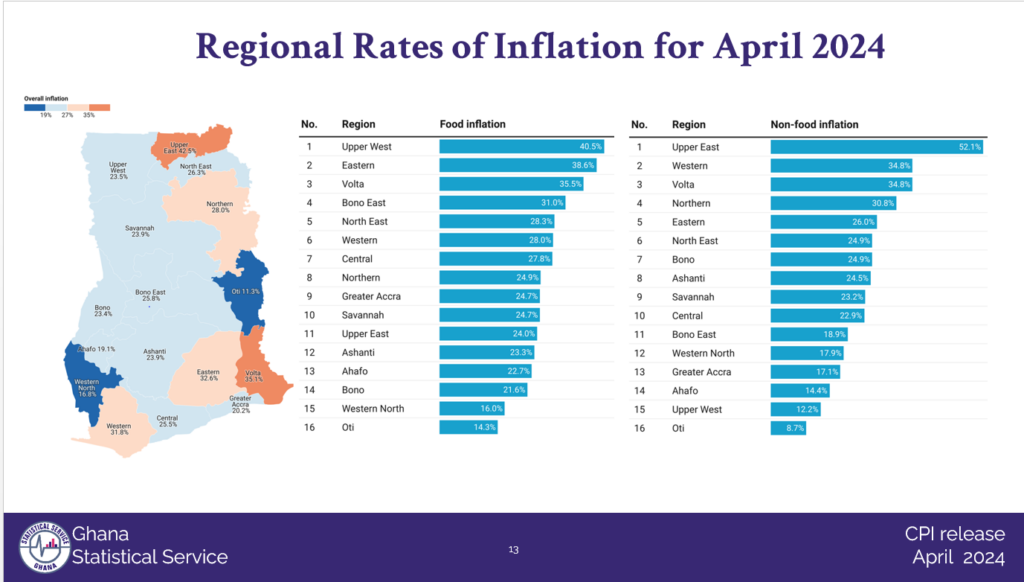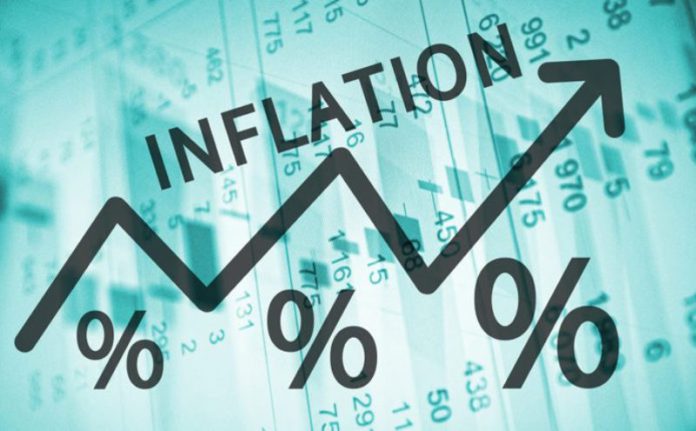Inflation for April 2024 declined marginally to 25.0% from the 25.8% recorded in March 2024.
Of this, the rate of inflation for the month of April 2024 slowed by 0.8%.
Food inflation contributed to the overall drop in the rate of inflation as it recorded a rate of 26.8%, the lowest in 13 months, with non-food inflation of 23.5%.
Non-food inflation however shot up to 23.5% in April 2024, from 22.6% in March 2024.
Inflation for locally produced items and imported items fell to 25.7% and 23.5% respectively.
Addressing journalists in Accra, Government Statistician Prof Samuel Kobina Annim said, “We saw a contrasting between food and non-food while we saw a decrease in non-food inflation from 29.6 percent to 26.8 percent in April 2024 a reverse was the case for non-food inflation as it increased to 23.5 percent from 22.6 percent in March 2024”.
Seven divisions recorded inflation rates higher than national average
Seven divisions recorded inflation rates higher than the national average. They are Alcoholic Beverages, Tobacco and Narcotics (39.3%); Restaurants and Accommodation Services (33.9%); Personal Care, Social Protection and Miscellaneous Goods and Services (31.9%); Health (31.2%); Recreation, Sports and Culture and (28.7%).

10 out of 15 Sub-Class register inflation higher than overall food inflation
For Food inflation, 10 out of 15 Sub-Class registered inflation above the overall food inflation of 26.8%.
They included Cocoa Drinks (63.4%); Tea and Related Products (59.3%); Vegetables, Tubers, Plantain, Cooking, Banana and Pulses (39.5%) and Coffee and Coffee Substitutes (35.5%).

From the regional perspective, the Upper East region recorded the highest rate of inflation of 42.5%, while Oti region recorded the lowest of 16.8% with Western North region.




